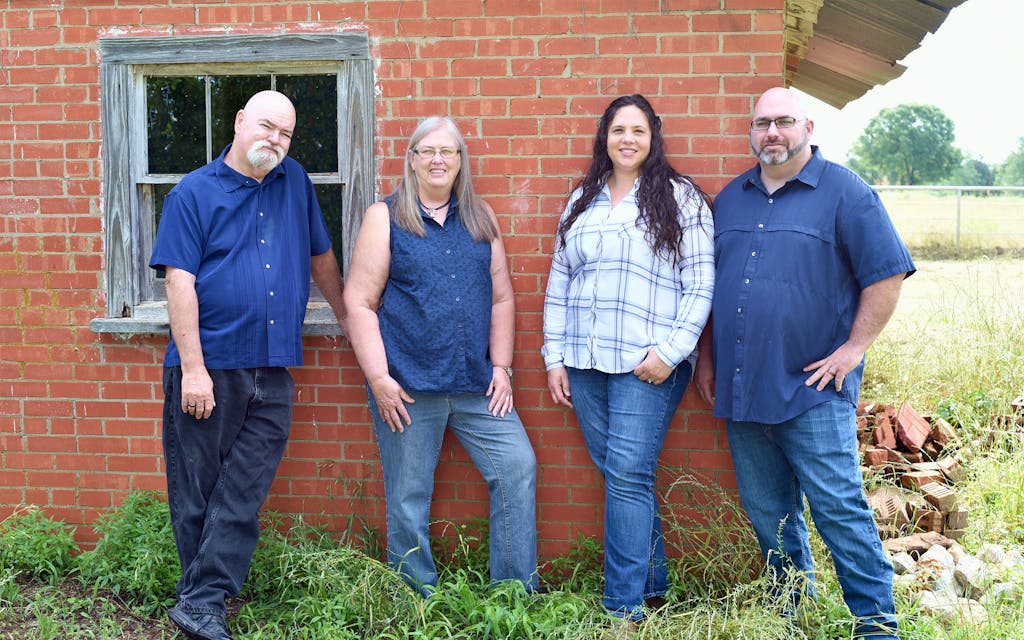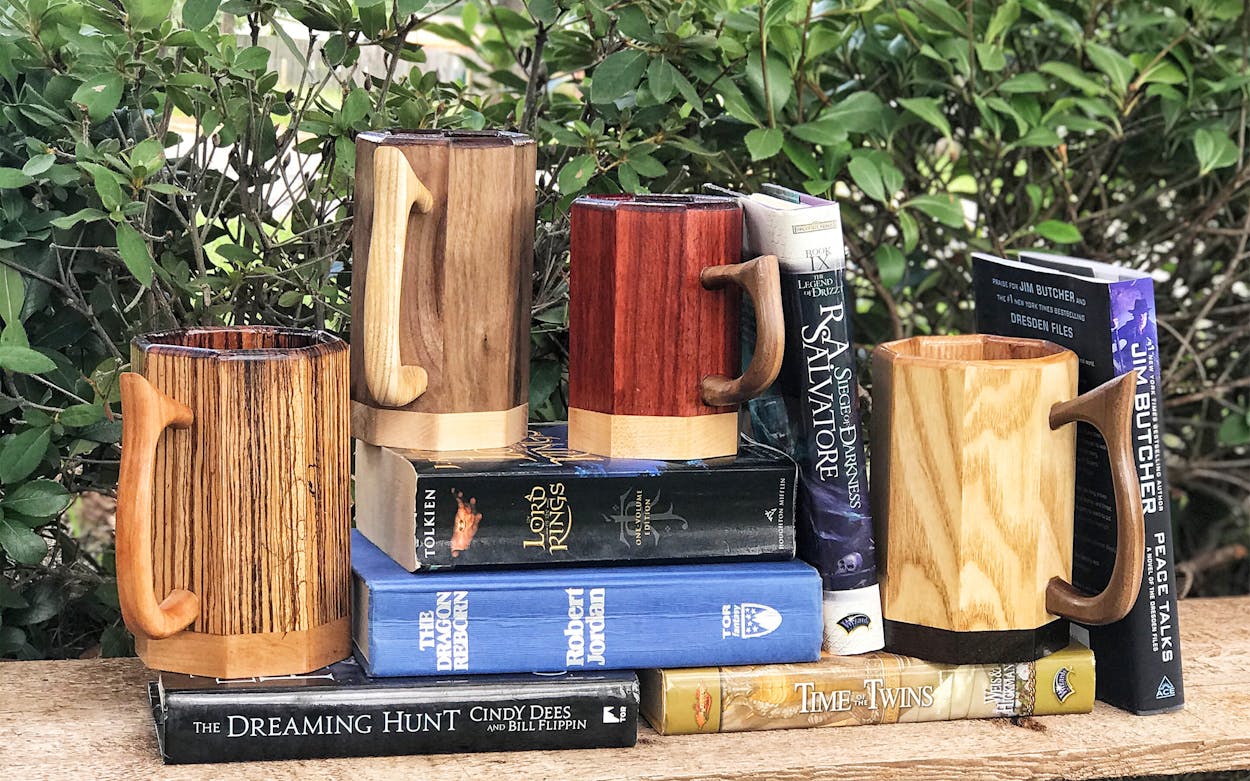The preopening hours at the Scarborough Renaissance Festival in Waxahachie sound like those at any other market. Store vendors gather to sip coffee and chat, celebrate big sales, and remind one another to drink plenty of water. It’s all very normal, until an actual cannon—fired by a man known at the fair as Boomer—sounds to signal the opening of the fair’s wooden gates. The arrival of the patrons activates all other sounds in the fair: the buskers’ lutes and strings, the blacksmith’s hammer, and the flower and popcorn seller’s ever-tinkling bells. We’re in a Tudor village during the reign of Henry VIII, and the workers and performers, clad in their corsets, leather boots, or chain mail, scatter like marbles back to their respective stages and shops to await some of the 200,000 visitors who come to shop and play during the fair’s eight-weekend season.
Renaissance fairs like Scarborough are composed of hundreds of independently owned and operated small businesses selling goods both on-theme and off: gourmet chocolates, handwoven tapestries, sculpted fairies, split geodes. Some makers are part-timers, but for many, like entrepreneurs Matt and Esther Warren of Whitehouse in East Texas, Renaissance fairs are a thoughtfully chosen marketplace and legacy. Together they run a family business: the Knarly Knot, an artisanal woodworking service that has operated solely within Texas Renaissance festivals for the last twenty years.
The Knarly Knot sells cutting boards and dice vaults, but its flagship item is a $60 octagonal wooden mug, smooth on all its hard edges, with a handle resembling the warm, inviting wisp of a single flame. The mugs’ sides alternate in color—glistening honey beside the dark burn of walnut, a surprising slash of purpleheart—or are solid, made from the wood of a single tree. The process, from the cutting of the boards to the final protective coating, takes ten to twelve hours per mug.
Before Matt Warren became “Master of the Mugs,” as his fellow vendors call him, he was a teenage Porthos of the Three Musketeers, hired to stroll around the bygone Four Winds Faire, in Troup, to make the old-time atmosphere more immersive. “Being on the cast was a truly magical time, where I was able to help create the environment that first attracted me to the Renaissance festivals in the first place,” Warren says.

At that time, the Knarly Knot was a one-person operation out of a tent. “The mugs were simple but beautiful, and [then-owner] Joe Broussard consistently sold almost all he made,” Warren says. Years later, Broussard decided to expand the business and gained entrance into the esteemed Texas Renaissance Festival (TRF)—the largest Renaissance fair in the nation. Once the Warrens saw the Knarly Knot make it into TRF, it was hard to ignore the potential the wooden mugs possessed. Warren’s father, Allan, bought the business from Broussard. Despite his familiarity with sixteenth-century garb, Warren never expected to turn Renaissance festivals into a career, and he worked in the tech industry for fifteen years before his father officially approached him and Esther about running the Knarly Knot in 2019.
“Fairs, in general, have a special place for us,” Warren says. “All three of us—my two siblings and I—met our spouses at a Renaissance festival. I met my wife at Four Winds. She was actually the blacksmith’s apprentice,” he says, raising an eyebrow. “If you think, ‘It’s a Renaissance festival, it’ll be a bunch of nerds dressed up in costumes playing in a cow pasture . . .’ you’re not wrong, but it’s also a bunch of Joes, Bobs, and all the other people you see during the workweek, just trying to escape the grind of the day-to-day and blow off steam.”
In the three weekends I embedded at the Knarly Knot, I saw not just a re-created history but a land of fairies, magical beasts, pirates, Vikings, college bros, hipsters, and foodies. Fanciful wardrobes are fun to see, but when patrons get to use a handmade product that feels like it’s from another time, that’s when the transition from “John in marketing” to “Sir John, the Boundless” becomes complete. It’s a transformation that happens multiple times a day as previous Knarly Knot customers enter the shop eager for their friends and family members to buy their own mugs. “You have to pick the mug that speaks to you,” a twentysomething huntsman says to his fiancée, a young woman in jeans who’s swallowed by the weight of a velvet cloak. “This is the one,” she says after several minutes of intently bustling from shelf to shelf. (“No, you are,” he responds.)
Warren jokes that his parents and Joe Broussard built their first booth at TRF “from the root to the tree up,” recalling the business’s transition from a tent on the edge of the fair into a fully realized hard-shell shop. Once the Warrens took creative control of the shop, they added cutting boards and different-sized mugs while Matt’s mom, Melissa, discovered the perfect protective mixture to coat the inside, ensuring every mug could hold piping hot or ice-cold liquids safely and not deteriorate with time or use.
Since Matt and Esther have taken the helm, sales have doubled at each of the shop’s three locations: TRF, in Todd Mission; Sherwood Forest Faire, in McDade; and Scarborough, in Waxahachie, where the couple currently awaits patrons until the festival season ends on Memorial Day. True to family tradition, the Warrens are ever growing the business—doubling the shop’s size, adding new items to their inventory, and sending the shop two stories high with a faux tree growing at its center.
- More About:
- Style & Design
- Festivals
- Waxahachie






